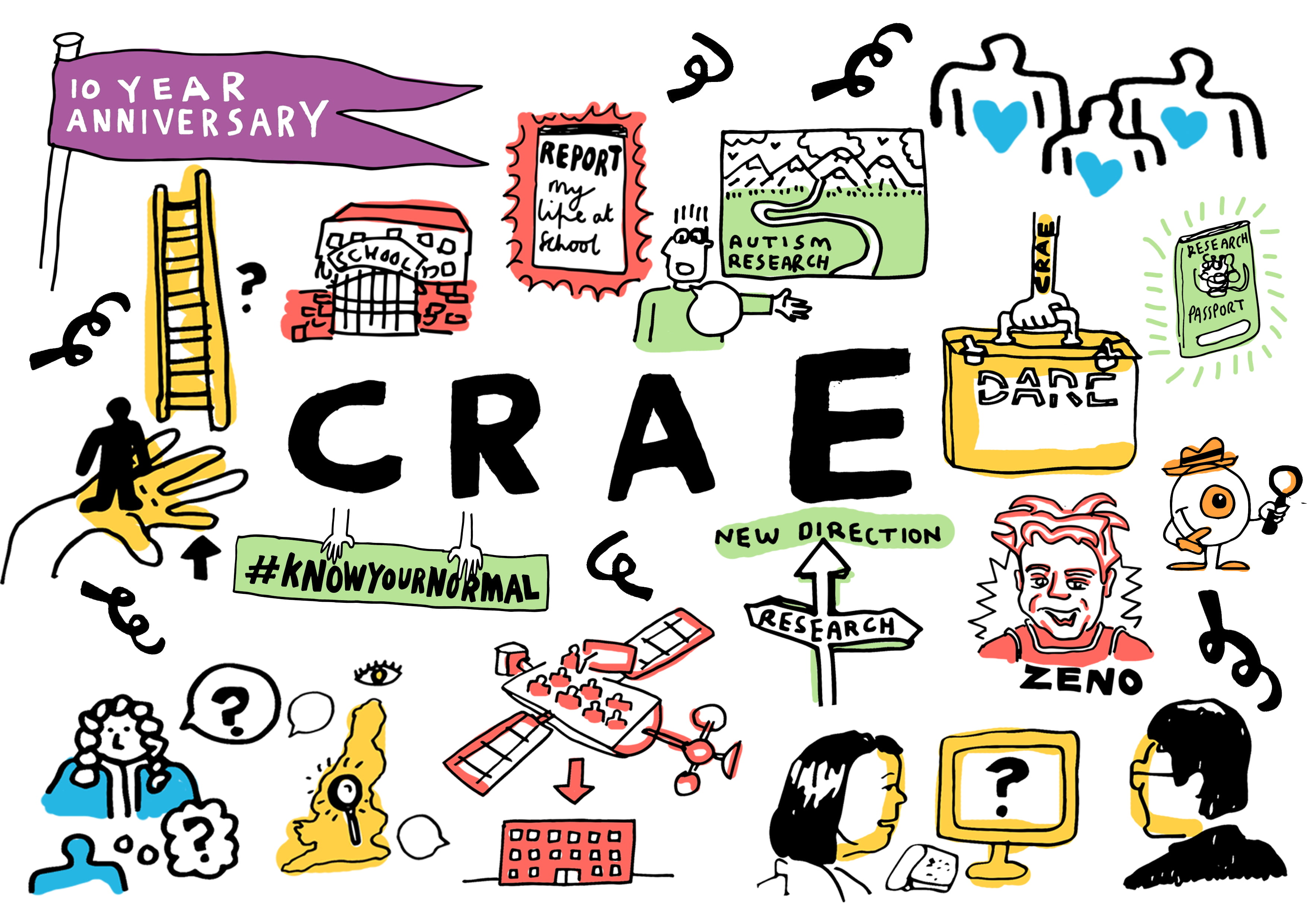10 years on: how researchers and the autistic community are making a future together
By Blog Editor, IOE Digital, on 27 November 2019
Anna Remington and Laura Crane.
The way we view autism is slowly changing. When the Centre for Research in Autism Education (CRAE) was set up in 2009, autistic people were not often heard. Today, a world-wide Climate Change protest is led by a 16-year-old young woman who calls autism her ‘superpower’.
But while this is positive, it should not overshadow the fact that autism is a wide spectrum and that there is still a long way to go before the voices of the wider autistic community come into their own.
This month, the CRAE team celebrated its tenth anniversary. Housed within UCL Institute of Education, CRAE’s mission is to enhance the lives of autistic people through conducting high quality research that has a genuine impact on autistic people’s day-to-day lives. We achieve this by meaningfully engaging autistic people and their allies – such as families and teachers – in the research we do.

Ten years ago, the autism research landscape was quite different to how it is now… and not in a good way. A seminal CRAE report called A Future Made Together (led by former Directors, Professor Liz Pellicano and Professor Tony Charman) starkly illustrated the problems.
First, most autism research focused on areas such as biology, brain and cognition, yet autistic people and their allies wanted it to concentrate on areas with a direct impact on their everyday lives. Second, autistic people and their allies weren’t engaged with research: they (rightly) complained that the results were not accessible to them. They felt autism researchers were not interested in what they had to say, and that genuine partnerships between autism communities and research communities were pretty rare.
Ten years on, we know there is still an awfully long way to go before these issues are fully addressed. There’s still much autism research that doesn’t align with community priorities, and the lack of genuine autistic involvement in research is, quite frankly, shameful. At CRAE, we’re taking some small (but hopefully mighty!) steps towards changing this.
We organise our research activities around three priority areas taken from A Future Made Together: (1) the effective dissemination of research, (2) ensuring we engage in respectful dialogue about research, and (3) the development of genuine research partnerships.
Dissemination: CRAE researchers work hard to share not only our own research, but also the work of others. We’re on social media (a lot), trying to explain what research findings mean and if/how they’re important. We also run lots of free public events, such as talks and workshops, to tell people about autism research in a safe and welcoming environment.
Dialogue: CRAE researchers want to listen to, and learn from, autistic people and their allies. We facilitate lots of opportunities for this to happen. For example, our work placement scheme provides young autistic people with opportunities to get involved in CRAE research during school holidays. Over the years, their input has been invaluable, having a profound impact on our research.
Partnership: Traditionally, autism research has led by academics without lived experience of the topic. The CRAE team comprises autistic and non-autistic staff and students. We also strive to work with autistic people to co-produce research (e.g., our award winning Know Your Normal research on mental health in young autistic people). Further, we collaborate with teachers from autism special schools (as part of our Pan London Autism Schools Network) to identify research priorities that matter to their pupils and would make a real difference to their schools.
Embedded through all of our research activities is a commitment to making research findings matter. For example, our co-produced research with Ambitious about Autism, showing how young autistic people struggle to know if they are experiencing mental health problems, led to an innovative toolkit, developed by the young people themselves, for monitoring and understanding mental health, as well as a stigma-busting animation.
Likewise, our new employment initiative DARE (Discover Autism Research and Employment), in partnership with Autistica, is revolutionising the way that we support autistic people to access and maintain employment.
We know there’s still lots more to be done and hope the next ten years represents a further change in autism research: prioritising questions that the autistic community wants answered, and ensuring they are meaningfully involved in – and leading – that research. Roll on the next ten years.
Acknowledgement: Special thanks to our former Directors, Professor Tony Charman and Professor Liz Pellicano, whose visions for CRAE still have a huge impact on CRAE’s work, now and moving forward.
 Close
Close



